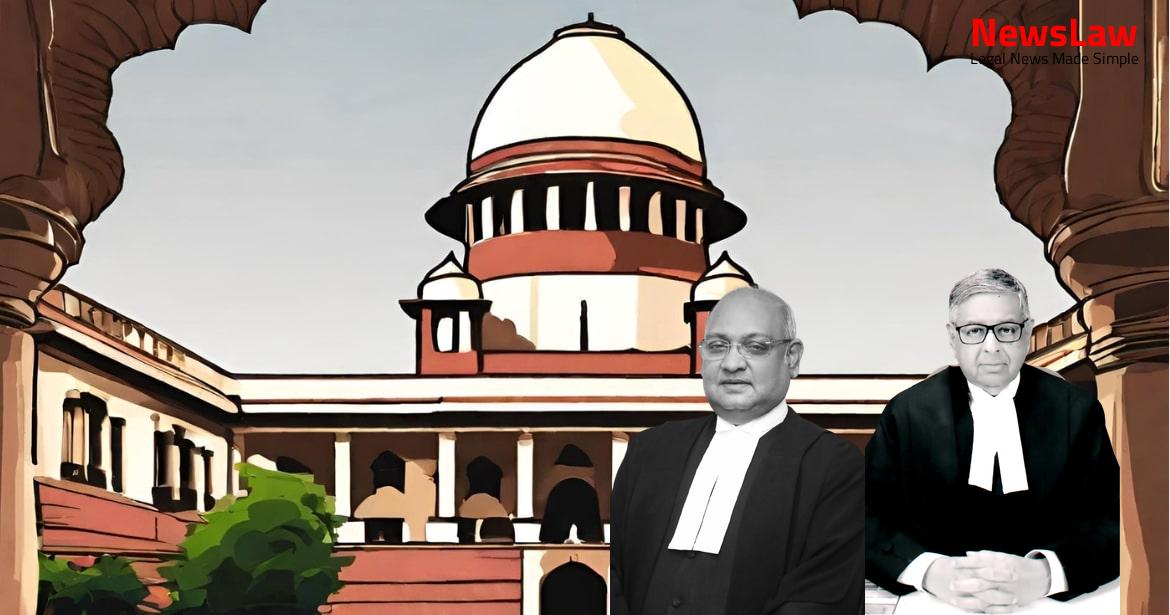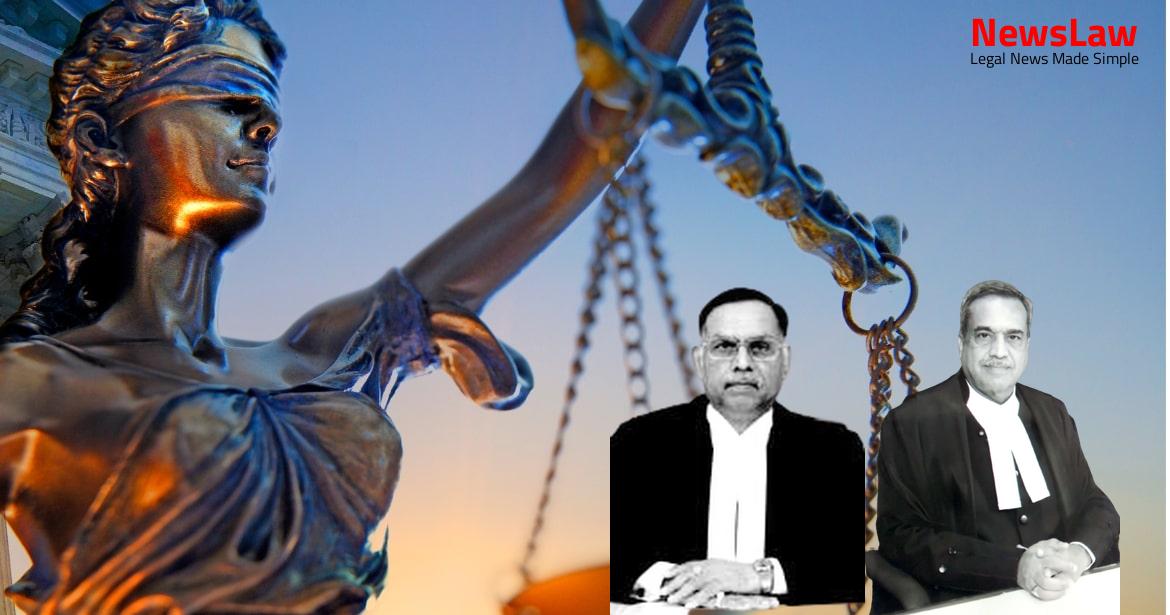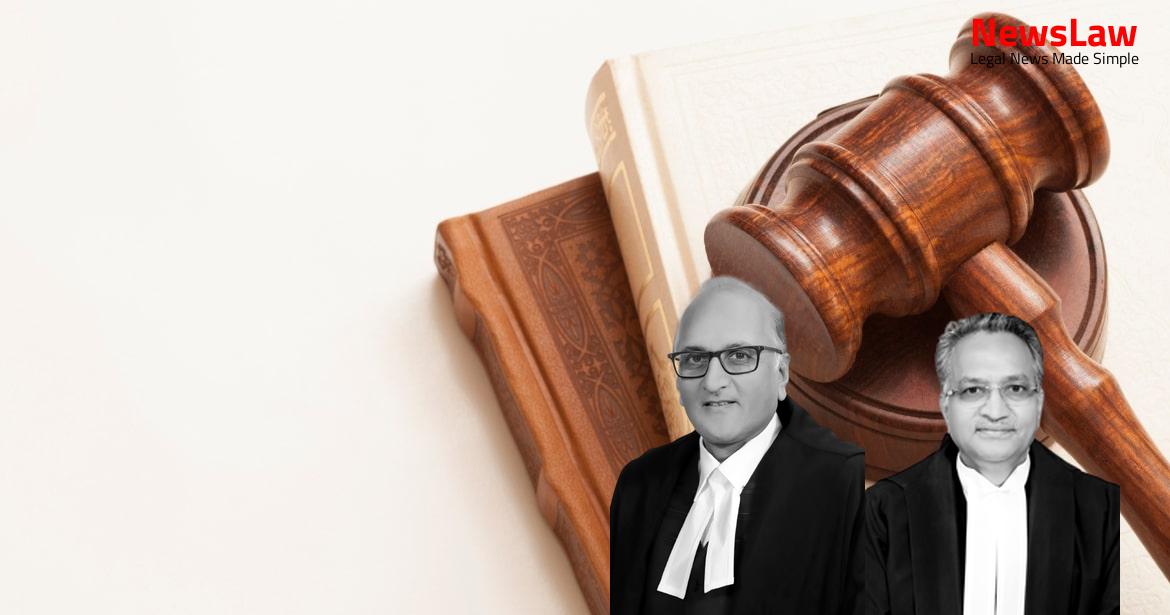The Court’s recent legal analysis delves into the complex issue of furlough entitlement for prisoners based on their conduct in prison. Highlighting the importance of family ties, self-improvement, and societal reintegration, the Court reiterates the need to consider furlough on a case-by-case basis, irrespective of remission or premature release possibilities. The analysis sheds light on the evolving principles governing furlough rights for convicts, balancing public interest with individual rehabilitation efforts.
Facts
- Criminal Appeal Nos. 870 of 2006 and 877 of 2006 were considered and decided by the Court on 09.08.2010.
- Leave was granted to the appellant and co-accused.
- Specific details and outcomes of the appeals were not provided in the given context.
- The Home Minister recommended modifying Atbir’s death sentence to life imprisonment without parole.
- Atbir filed a petition under Article 72 of the Indian Constitution for pardon, suspension, remission, or commutation of his sentence.
- The High Court confirmed Atbir’s death sentence and Ashok’s life imprisonment sentence.
- Atbir’s review petition and curative petition were dismissed by the court.
- Atbir’s behavior was described as barbaric and inhuman, shocking the community’s conscience.
- Atbir’s furlough application was declined due to not fulfilling the criteria of good conduct reports.
- The President of India modified Atbir’s death sentence to life imprisonment without parole or remission.
- Atbir’s appeal against the denial of furlough was dismissed by the High Court.
- Atbir’s conviction was based on killing his family members and inflicting numerous knife-blows, considered a rare case deserving death sentence.
- The mercy petition under Article 72 was rejected, ensuring no remission of imprisonment term for Atbir.
- Atbir is to serve life imprisonment without parole or remission.
- Atbir’s furlough application was rejected based on the terms set by the President’s earlier order.
- The Director General of Prisons confirmed Atbir’s conviction and death sentence being in the rarest category.
Also Read: Ensuring Maintenance Rights: Court’s Legal Analysis
Arguments
- Learned counsel argues that furlough should be granted to the appellant based on his good conduct in prison and fulfillment of eligibility conditions as per Rule 1223(I) of the Rules of 2018.
- The High Court’s assumption that furlough is linked to remission and premature release is contested by learned counsel.
- The appellant’s right to furlough should not be denied, even if he is to remain in prison for the rest of his life, as maintaining good conduct should automatically entitle him to furlough.
- The appellant’s personal integrity and rights as a prisoner should not be compromised without valid reasons related to incarceration and term of sentence.
- The curtailment of remission or possibilities of premature release should not affect the appellant’s entitlement to furlough as per the Rules of 2018.
- Even if remissions for good conduct are not leading to release, the appellant still earns them, and eligibility for remission should not be a determining factor for furlough consideration.
- The appellant has been in prison for 26 years and fulfills the criteria for furlough based on his good conduct reports as per the Rules of 2018.
- Furlough can only be granted if the appellant has good conduct in prison and has earned rewards in the last 3 Annual good conduct reports.
- Annual good conduct remission is not available under Rule 1178, so the appellant may not be admitted to furlough.
- Prisoners like the appellant do not have an absolute legal right to claim furlough, as per the observations of the Court in a previous case.
- If the convict commits an offence while on furlough, the period of furlough is deducted from the sentence, but this deduction is not permissible in this case.
- The learned ASG has not contested the underlying principles of furlough as explained by the Court, despite maintaining the respondent’s stance.
Also Read: Analyzing Evidentiary Value in Criminal Conviction Case
Analysis
- The Court assumed that remission was a pre-requisite for furlough.
- Parole is granted for emergencies while furlough accrues on compliance with conditions.
- The High Court found the appellant not entitled to furlough due to lack of remission entitlement.
- The High Court’s reasoning was based on a previous order related to the petitioner’s case.
- The appellant’s right to furlough was argued by counsel citing misconstruction of relevant provisions.
- Principles of parole and furlough application were summarized by the Court.
- Specific references to Delhi Prison Rules and denial of all kinds of remissions were made.
- Grant of furlough should balance public interest and can be refused to certain categories of prisoners.
- The Court disagreed with the High Court’s reasoning and contentions based on Presidential order.
- Furlough is a form of conditional release granted to convicts who have served a certain portion of their sentence with good conduct.
- Parole, on the other hand, is a temporary release of prisoners for specific reasons.
- The eligibility for furlough is based on maintaining good conduct, not on earning remissions.
- The purpose of furlough is to incentivize good behavior and maintain family connections.
- Even if a convict is not eligible for remission and has a life sentence, they can still be considered for furlough based on their conduct.
- The High Court’s reasoning on the relationship between remission and furlough was not agreed upon by the Court.
- Furlough is not a suspension of sentence; the period spent on furlough is included in the sentence.
- The decision on furlough is based on maintaining good conduct and is not contingent on earning remission.
- The Courts emphasized the importance of family ties, self-confidence, and good behavior in considering furlough for prisoners.
- Furlough is seen as a progressive correctional measure to motivate prisoners towards rehabilitation and societal reintegration.
- Prisoners convicted under sedition, terrorist activities and NDPS Act are not eligible for release on furlough.
- Prisoners whose immediate presence in the society may be considered dangerous or otherwise prejudicial to public peace and order by the District Magistrate of his home district are not eligible for release on furlough.
- Prisoners involved in serious prison violence like assault, outbreak of riot, mutiny, or escape are not eligible for release on furlough.
- Convicted foreigners are not eligible for release on furlough.
- Prisoners suffering from mental illness, if not certified by the Medical Officer to have recovered, are not eligible for release on furlough.
- Simultaneous furlough to co-accused convicts is ordinarily not permissible, except in exceptional circumstances for family members.
- If an appeal of a convict is pending before the High Court or the period for filing an appeal before the High Court has not expired, furlough will not be granted, and the convict can seek appropriate directions from the Court.
- Granting furlough is a separate matter and should be considered on a case by case basis.
- The appellant, convicted of multiple murders, may still be eligible for furlough in the future.
- Blanket denial of furlough is disapproved.
- The authorities should examine the case of the appellant for furlough in accordance with the law.
- Rule 1225 of the Rules of 2018 may be applied in this case.
Also Read: Legal Authority and Res Judicata in Representation Matter
Decision
- The appeal has been allowed and the impugned orders from the High Court of Delhi and Director General of Prisons are set aside.
- The case for grant of furlough is restored for reconsideration by the Director General of Prisons.
- A fresh report may be requisitioned from the jail authorities and the matter should proceed in accordance with the law.
Case Title: ATBIR Vs. STATE OF NCT OF DELHI (2022 INSC 492)
Case Number: Crl.A. No.-000714-000714 / 2022



